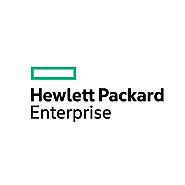-
About
- About Listly
- Community & Support
- Howto
- Chrome Extension
- Bookmarklet
- WordPress Plugin
- Listly Premium
- Privacy
- Terms
- DMCA Copyright
- © 2010-2025 Boomy Labs

 i- SCOOP
i- SCOOP
Listly by i- SCOOP
What is hybrid cloud computing and the hybrid cloud? Not everyone agrees. A list of hybrid cloud definitions from several sources.
Source: https://www.i-scoop.eu/cloud-computing/hybrid-cloud-computing/

Hybrid cloud computing refers to policy-based and coordinated service provisioning, use and management across a mixture of internal and external cloud services.

Hybrid cloud combines public cloud and private cloud into a seamlessly blended infrastructure. Adding traditional IT into the mix results in a full hybrid IT model that allows companies to take advantage of the public cloud pricing, the general flexibility of cloud computing and the security of dedicated hardware.

Hybrid clouds combine cloud resources designed for a single organization with multi-tenant or public cloud resources into a single, functional service platform. Hybrid clouds are growing in popularity because they allow organizations to reap the cost benefits of a public cloud infrastructure while giving greater options for customization and privacy/security via a private cloud. In this way, hybrid clouds offer the best of both worlds.

A hybrid cloud enables IT to gain additional flexibility between private and public cloud resources via a single automated and orchestrated operating environment. A hybrid cloud also enables IT to optimize for disparate needs and diverse workload requirements.

A hybrid cloud is an integrated cloud service utilising both private and public clouds to perform distinct functions within the same organisation

Originally, the hybrid cloud concept was a single cloud where compute spanned both public and private domains, existing on both sides of the firewall. But from a security and a logistics standpoint, this was hard to implement. Today “hybrid cloud” is becoming “hybrid cloud environment”, a strategy where businesses might be running applications in different environments, with multiple cloud vendors, both public and private. Data and resources are shared across multiple domains (and providers), but each element only lives in one domain

A hybrid cloud is a computing environment that combines a public cloud and a private cloud by allowing data and applications to be shared between them. When computing and processing demand fluctuates, hybrid cloud computing gives businesses the ability to seamlessly scale their on-premises infrastructure up to the public cloud to handle any overflow - without giving third-party datacenters access to the entirety of their data.

A hybrid cloud is a flexible and integrated combination of on-premises infrastructure, private cloud, and public (i.e., third-party) cloud platforms. Even though public and private cloud services are bound together in a hybrid cloud, in practice they remain unique and separate entities with services that can be orchestrated together. The choice to use both public and private cloud infrastructure is based on several factors, including cost, load flexibility, and data security.

There's a lot of confusion around what is truly meant by the term 'hybrid cloud'. According to Forrester Research principal analyst Dave Bartoletti that's likely due to its origin: "The term hybrid cloud was pretty much invented by vendors -- it wasn't invented by clients." Carl Brooks, an analyst at 451 Research, agreed that the term hybrid cloud was misleading, noting that there was a lot of marketing hype behind it.
